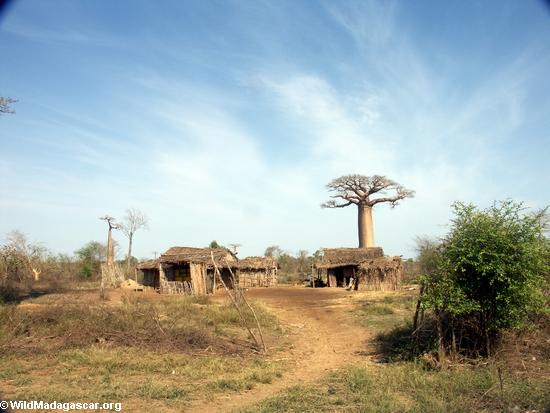North Carolina firm helps local artisans while saving the rainforest
Annual Meeting of the Society for Conservation Biology
July 23, 2005
Can a company generate income while helping local artisans and protecting the environment in far off lands? A Durham, North Carolina firm is doing just that. Since 1993, Forests of the World has imported and distributed “fair-trade” products made by people living in and around some of the planet’s most endangered forests.
Forests of the World was founded in 1989 by two students at Duke University’s Nicholas School of the Environment who sought to link biodiversity conservation and sustainable development. Marc Dreyfors and Jamey Gerlaugh began by importing rain forest seeds, crafts, and body care products from Costa Rica and eventually expanded the business to include a number of other sustainable products.
Today Forests of the World has grown to work in over 15 countries and with more than 40 artisan groups including a sizeable operation in Madagascar where as many as 100 local people design products made from raffia, a fiber obtained from a palm endemic to the island. Forests of the World estimates that since 1994, it has sold over $1.5 million worth of raffia products from Madagascar, about $400,000 of which has been returned to the country. The entire supply chain, from harvesters of raffia to artisans to exporters, benefit from this sustainable business.
 The efforts of Forests of the World help rural communities in Madagascar where local people would otherwise often need to rely on unsustainable activities to earn a living. |
|
Other products imported and distributed by Forests of the World include Rattan bags from Borneo, Toquilla hats and bags from Ecuador, Canaflecha hats and bags from Colombia, Balata rubber toys from Guyana, outdoor wooden furniture from Bolivia, and “seed kits” from Costa Rica. Forests of the World verifies that all products are be made both in an environmentally sustainable manner and under the provisions of fair trade, whereby the people who make the products are paid a “living wage,” have safe and healthy working conditions, and give a percentage of sales back to community development projects.
The company has also established The Forest Foundation, a nonprofit organization charged with helping artisans develop green business management and promote environmental education. The Forest Foundation even arranges ecotours for people interested in seeing these green businesses firsthand.
Products handcrafted by Forests of the World’s artisans can be found in dozens of stores around the United States, Canada, and Central America. The firm also sells directly to the public once a month from their Durham store. You can learn more at their website, forestsoftheworld.com
This article used copy and information from forestsoftheworld.com.